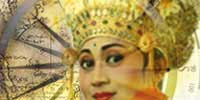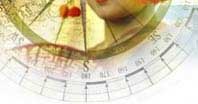|
Collective cremation to be held in Bali
DENPASAR (indo.com): Travelers visiting Bali in the third
week of July, 2004 will have a good opportunity to view
directly Balinese collective cremation.
The collective cremation will be held in eastern part
of Bali, especially in Klungkung, Gianyar and Karangasem
regency. Locals will dig up cemeteries to find corpses
that were buried five years ago prior to the cremation.
By the end of July, you will see a huge crowd swarming
along the streets and shouting, laughing horde of men
shoulder gaudy platforms and life-size animal statues,
weaving with their burdens in a crazy path. There will
be water fights, and boisterous horseplay. The animals
spin around riotously and tilt precariously. Meanwhile,
small white clothes are strung out over the heads of dozens
people who carry the gigantic tower and women carry objects
in silver bowls on their heads.
Many families who have corpses join collective cremation
for thrifty reason. Individual cremation costs a lot of
money. Much money needed for ceremony and the preparation
for the cremation that involves hundreds of people. It
usually takes weeks and even months to prepare an individual
cremation.
Balinese collective cremation is on the list of big event
in Bali even though it has nothing to do with the death
of someone. The offerings provide symbolic pleasure to
the deified ancestors and to the spirits that will be
shortly released to God. Most important, however, the
offerings will implore God to purify the spirit and return
it to earth in an appropriately higher and purer form.
The empty sarcophaguses are snatched up by the shouting
banjar's men (society association) and spun and whirled
as they are carried in a crazy melee to the cemetery.
This idea is to confuse the evil spirits and make them
loose its way so that they cannot return and haunt the
family anymore. After the sarcophaguses arrive at the
cemetery, then the men return again to carry the tower,
which represents the Balinese universe.
When everything is ready, the fires are ignited to burn
the sarcophagus, in which many bones of the corpses put
in it. This may be done by a pedanda (a holy priest from
the highest caste), and after the fires have died down,
attendants douse the ashes with water then collect the
Chinese coins and family members collect scraps of ashes
and bone from the bodies. Meanwhile, the lay priest ring
his bell and chanting magic mantras that will help the
release of the soul and aid it on its journey to heaven.
|





